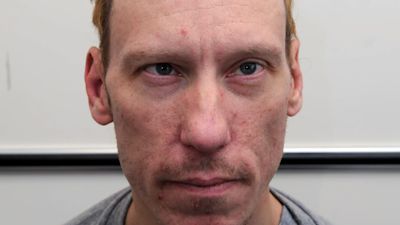Detective investigating serial killer Stephen Port apologises over failings

A senior detective who was investigating serial killer Stephen Port admitted to several failings and apologised to the families of the four victims.
Port was found guilty at the Old Bailey in 2016 of murdering four men and sentenced to a whole life order.
His victims Anthony Walgate, 23, Gabriel Kovari, 22, Daniel Whitworth, 21, and Jack Taylor, 25, were all found dead near the killer's flat between June 2014 and September 2015.
Port was jailed in March 2015 for lying about Mr Walgate’s death, but was released and went on to kill the three other victims.
Jurors at an inquest are assessing whether the victims’ lives could have been saved if police acted differently.
Detective Sergeant Martin O’Donnell told jurors he regretted not properly examining Port's laptop, not sharing information with colleagues about a previous allegation that Port plied a young man with drugs and raped him, and not calling for a search on the police national database about Port.
Data on Port's laptop showed him searching for drug-rape porn involving young men and boys while arranging to meet escort Mr Walgate.
But the senior detective, who was in charge of progressing the investigation into Mr Walgate's death for the first seven months, did not spot this evidence.
Mr O’Donnell said: “I can only apologise deeply to the families for not being able to do this (the laptop search) to the standard they expected.
“It was there on his laptop and we should have got it. We should have got it."
Mr O'Donnell also did not properly log information about a previous allegation in December 2012, when Port was arrested on suspicion of forcing a man to have sex with him after giving the man drugs.
The case was dropped because the alleged victim withdrew his statement.
Speaking about his failure to share this information with colleagues, he said: “It feels like a fairly significant mistake of mine not to include it in that document. “It’s a terrible mistake that I did not put it in there."
Port had repeatedly changed his account in court over Mr Walgate's death, the inquest previously heard.
He told emergency services he first saw fashion student Mr Walgate slumped by the communal entrance to his block of flats on June 19, 2014. But he later admitted he had agreed to meet the escort for sex.
Andrew O’Connor QC, counsel to the inquest, said: “Stephen Port lied to police about his dealings with Anthony, there were suspicions his death was caused by drugs, and you have a detailed account that he (Port) forced drugs on him (the rape complainant) on more than one occasion.”
Mr O’Donnell replied: “Yes, you’re absolutely right, that should have gone on that report."
The detective denied the accusation by Mr Walgate’s friend Kiera Brennan that police “wrote him (Mr Walgate) off” as he was an escort.
Furthermore, Mr O'Donnell's failure to instruct a search on the police national database meant the detective was unaware that in the same month that Mr Walgate died, British Transport Police had found Port at Barking Station, a short walk from his east London flat, with another man who was under the influence of drugs.
Mr O'Donnell said his team had been over-worked at the time, something his colleagues also said.
He said: “There was enormous pressure in the office at the time.
“We discussed what we were doing at the time as spinning plates – you would rush to one plate that seemed to be crashing down, then another plate that seemed to be crashing down. It was easy to miss things.”
His colleagues, Detective Constable Nainesh Desai and Detective Constable David Parish, previously told the inquest about the mistakes they made while investigating the deaths. Mr Desai said he failed to link the first two deaths and Mr Parish admitted he did not send the killer's laptop for analysis in the days after his first attack.
The inquest continues.